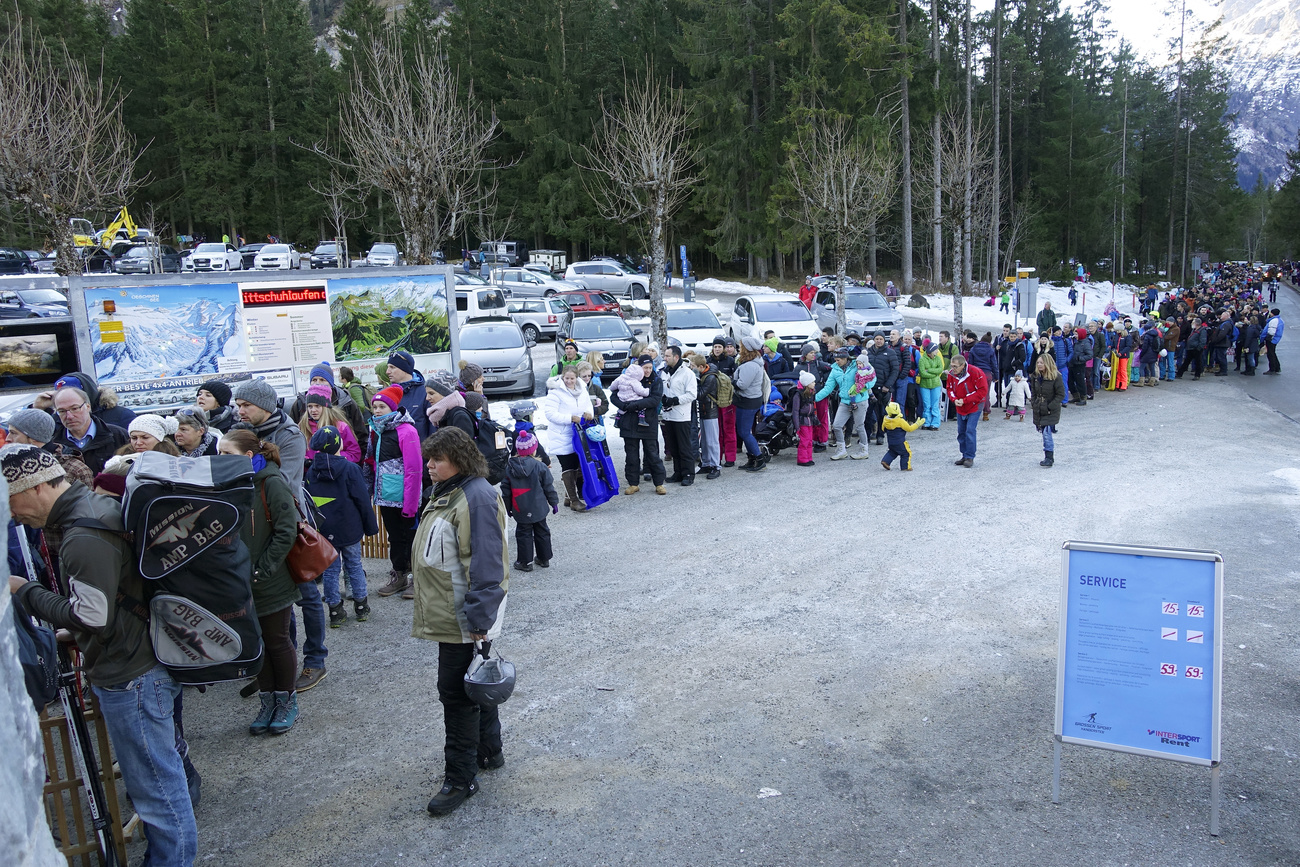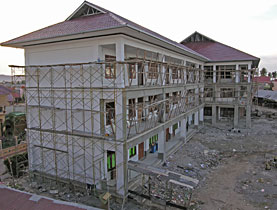Swiss tsunami survivors still have nightmares

Exactly four years ago on Friday a huge wave hit countries surrounding the Indian Ocean leaving a trail of desolation.
Although the exact figure will never be known, it is now thought that about 230,000 people died. Many of those who survived, locals and western tourists, still bear psychological scars.
A new word leapt from specialist text books into mainstream language: tsunami.
The overwhelming majority of the dead were, naturally, locals. Over a million people were displaced. Those who survived not only lost loved ones, but many of their homes and sources of livelihood were swept away.
But the end of December is the peak holiday time, and the Indian Ocean is a popular destination for westerners. At about 9,000, the number of foreigners who died pales into insignificance in comparison with the local population, but the trauma of the event lives on in many of the survivors in the west too.
Post traumatic stress
Several hundred of those survivors came from Switzerland and a study conducted by Zurich university (but not yet published) has found that about 17 per cent of them are still suffering from post-traumatic stress disorder as a result of their experience.
For Switzerland this is a surprisingly high figure, psychiatrist Bernd Krämer, of Zurich university hospital, who led the team which carried out the study, told swissinfo. In Switzerland usually only between three and five per cent of people who have experienced a traumatic event suffer post traumatic stress symptoms.
These symptoms are of three different kinds, Krämer explained.
“One is reliving the experience. This includes nightmares and flashbacks. Then you have avoidance: you no longer do things you used to enjoy, or you avoid situations, conversations or people who remind you of the trauma. And the third is general nervousness, sleeplessness and so on.”
The Zurich study is unable to suggest what kind of person is most likely to suffer like this, but it is known from other studies that if people who have been through a trauma are not given social support they are more likely to develop symptoms of post traumatic stress.
New bearings
Krämer’s team tried to look at whether people’s religious faith or spirituality had any impact on their reaction to the trauma, although a study conducted only at one specific point in time – rather than looking at people before and after the event – is unable to draw firm conclusions about this.
“We could only look at the connections, and we saw no connection between people’s religious faith or spirituality and whether they experienced any symptoms,” he said.
“But what we did see was that if a person has a religious belief, it is easier for them to find new bearings. They can still have symptoms, but they can say: I have found a new orientation, I have got to a different point in my life.”
Post-traumatic stress disorder can be treated successfully with psychotherapy, and there is also medication available, and overall the prognosis is good, Krämer said.
The study, which covered 342 tsunami survivors, revealed that 60 per cent of them had not had any psychological treatment. Krämer would like better information about the risk of post-traumatic stress to be made available to all people returning from a disaster zone.
swissinfo, Julia Slater
Money poured in from all over the world to help tsunami victims.
In Switzerland funds were provided by the government and by individuals.
Switzerland’s official help, amounting to SFr35 million ($32.5 million), was focussed on Thailand, Indonesia and Sri Lanka.
All projects financed from this source have been completed.
Swiss Solidarity, the fund-raising operation led by the Swiss Broadcasting Corporation, raised SFr227 million from the public, and has so far used 205.5 million.
Most of its tsunami projects should be completed by the end of 2009.
Nine per cent of the money was used for emergency aid, 80% for reconstruction and 11% for sustainable development.
Swiss Solidarity worked in six countries with 14 Swiss partner organisations.
The study looked at 342 Swiss survivors of the tsunami.
The exact number of Swiss affected by the tsunami is unknown.
Immediately after the event more than 4,000 were reported missing.
130 Swiss tourists lost their lives in the disaster.

In compliance with the JTI standards
More: SWI swissinfo.ch certified by the Journalism Trust Initiative











You can find an overview of ongoing debates with our journalists here . Please join us!
If you want to start a conversation about a topic raised in this article or want to report factual errors, email us at english@swissinfo.ch.